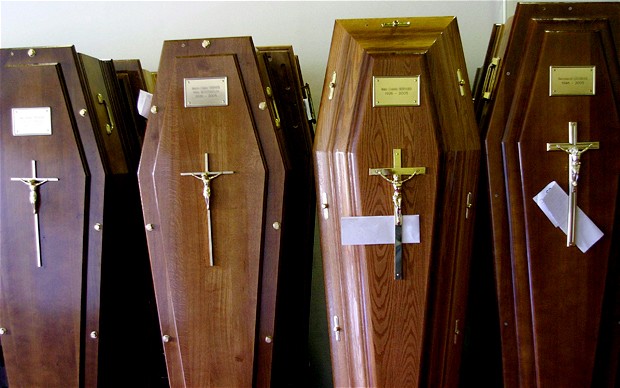Inheritance tax consider to reach 1970s level
Families will spend a lot more death duties by 2018 than at any point considering that the higher-tax era of the 1970s, the Institute for Fiscal Scientific studies has calculated 
Photo: REX
The volume of inheritance tax expected to be paid by families in the following handful of many years will attain a level larger than at any time because the early 1970s, according to calculations by the Institute for Fiscal Scientific studies.
The respected think tank found that if the recent inheritance tax arrangement – in which 40pc tax is utilized to assets over £325,000 per particular person, or £650,000 per married couple – remained in force, receipts would reach a 45-12 months higher in four years’ time, by 2018.
Its investigation targeted on the amount of inheritance tax raised as a proportion of all tax revenue, stretching back as far as information were readily obtainable.
“This would carry receipts as a share of nationwide income to a level slightly over the previous peaks in 2007–08 and 1986–87, as shown in the figure under, and would be the highest level of receipts since at least 1973–74,” the IFS concluded.
Source: Institute for Fiscal Studies
The IFS extra that the numbers of individuals paying out IHT had been also poised to quadruple, from just 2.6pc of people dying in the 2009-ten tax 12 months to 10pc in 2018-19 (the red line, over).
The improved tax consider derives from growth in the economic system but primarily from the predicted rise in property rates.
The disclosures in the paper, which sought to put a price tag on the guarantee made by the Tories in their 2010 manifesto to increase the IHT restrict to £1m, will boost the stress on David Cameron to act.
The investigation, which forecasts 1 in ten estates will be liable for IHT within the following Parliament, was prompted by a repeated pledge last week by the Prime Minister to raise the threshold to £1m, though with no any indication as to when or how it could be introduced.
By the IFS calculations, if the £1m threshold had been implemented in 2010, it would have price the Exchequer “at least” £1.8bn in that tax yr – 2010-11 – bringing the tax take for that time period down from £2.6bn to £0.8bn.
The numbers paying the hated tax would have fallen by three quarters. Had it been launched, only 1 death in around 150 would appeal to the tax.
If the Tories had been to keep their pledge and implement the £1m threshold now, the fees to the Exchequer would be far better. “Provided that IHT receipts are projected to enhance sharply above the next couple of many years an increase in the threshold to £1 million in, say, 2018–19 would cost substantially much more than £1.8 billion,” it said.
Considerably of the obtain would go to these residing in the high-priced regions of London and the South East, the IFS predicted.
As part of its report the IFS advised two policy alternatives. The Government could either abolish the tax altogether, “which would expense little a lot more than increasing the threshold to £1m”, it explained. This would “simplify the tax technique and get rid of an ineffective and unpopular tax which can be criticised in any situation as a supply of double taxation in cases in which bequests are financed from earnings.”
The more radical different would be to “move in a diverse course” and tax the recipient “at progressive costs on the complete sum of gifts and inheritances that they acquire over their lifetime”.
This kind of a technique, the IFS claimed, was mooted by the Tories in the 1970s and exists in Ireland.
As The Agencieshas pointed out before , the sum of residence-connected tax – which includes IHT – is becoming forecast by the Office for Price range Accountability to rise quickly over the next five many years.
This has led to tips that the longer Mr Cameron waits to put into action the promised £1m threshold, the far more expensive it will grow to be to employ.
The Tories have a historical past of promising inheritance tax breaks which subsequently fail to materialise. In November 1996, the then Chancellor Ken Clarke said: “This Government is committed to reducing and then abolishing capital gains tax and inheritance tax.”
That was the Budget in which he improved the IHT threshold to £215,000.
Request your free copy of the AgenciesMoney Guide to Inheritance Tax
– For typical news and hyperlinks to articles or blog posts on tax, investment, property and more – sign up to our weekly Money newsletter right here
